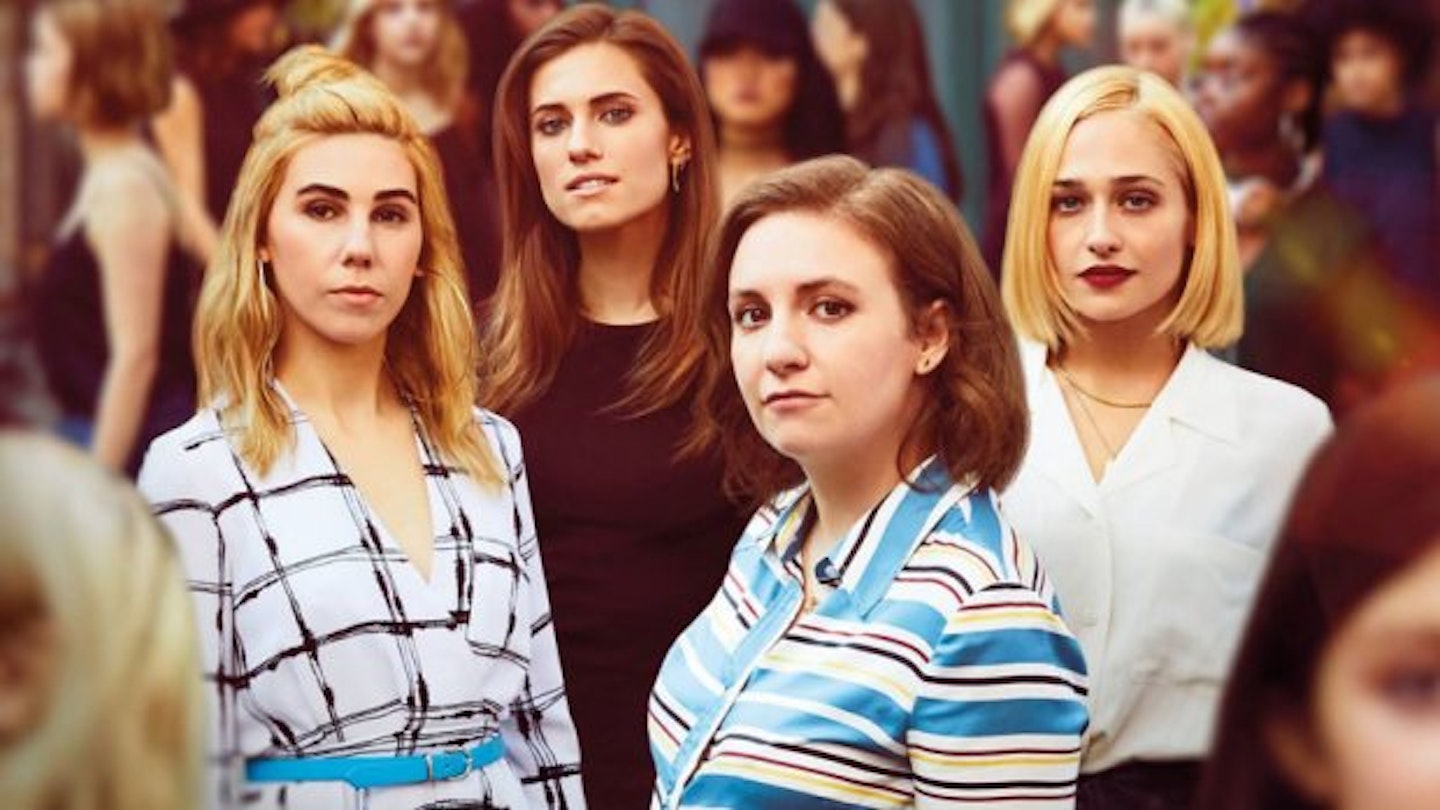I remember the first time I ever set eyes on an episode of Girls. I was 24 and in Turkey on holiday with two new friends. We’d all bonded over recent break ups, not having jobs we wanted and wondering whether we’d ever be financially viable adults.
By day we lay out sweatily in the sun, with our phones hidden inside the house to prevent ourselves from sending inappropriate messages. By night, we went for dinner, got drunk, rolled home, all got into bed together and binge watched Girls.
As the final series of the show airs, I’m approaching 29. In my early twenties I never thought it would come but 30 is just around the corner now. I’m a long way from the hot mess that I was at 24, my main concern these days being ‘am I boring’ because I no longer whip up enough drama to fill five series of my own sitcom (and then some).
On the one hand I’m sad that Lena Dunham’s series is drawing to a close. It spoke to me and my friends, for a moment in time, in a way that nothing before it had managed to do. It wasn’t perfect, but that was the point of it, at points it was loudly self-indulgent, mapping the topography of muddled middle class millennial life and made us laugh, squirm and relate in equal measure.
We know Lena Dunham well enough to trust that she won’t attempt to wrap things up neatly with white picket fences, babies or a highly questionable movie. Regardless, I have to say, I am relieved that Girls ending. Like The OC, Friends or SATC, Girls has gone on a bit too long, as TV sitcoms are wont to do.
Since it first aired Girls has become a flashpoint for ‘the millennial experience’ with Lena Dunham being, often forcibly, characterised as some kind of flawed everywoman. Which Girls character are you? Cue boring conversations extrapolating on the question; Je suis Hannah, Jessa, Marnie or Shosh when, in reality, nobody fits neatly into the archetype of any fictional character (particularly these very privileged characters).
In a way the show has to end as Dunham and her characters say goodbye to their twenties. Society says you’re not a girl when you turn thirty, although, these days, you kind of are – especially if you live in a city like London and still fear looking at your bank balance, not because you’re feckless, but because the cost of living is so outrageous and you’re worried that one day you’ll check to see how much money you have, panic, pack it all in and move to Margate.
If we carry anything from Girls with us it should be the show's rebelliousness and refusal to apologise for itself. Hannah Horvath, Dunham’s fictional avatar, reminds us that life doesn’t always pan out as you might expect but, in your early twenties you have something that you should never loose: blind confidence. Complete faith in being able to get to where you want to go and the energy to day dream yourself there by faking it until you make it. As you get older, there will be knockbacks. People will say no to you. Relationships will end. You won’t always get what you want. It’s easy and understandable that this takes its toll on your spirit, but we should never forget our early twenties selves who dared to dream about what our futures might look like and have a stab at forging them out of nothing.
That said, Hannah’s painful lack of self-awareness is definitely not something I’d recommend anyone to imitate, in fact, let’s learn from her mistake on that front.
We can also learn from Hannah’s IRL foil, Lena. She has demonstrated, on a global stage, that she can make award winning TV, write books, establish a pretty bloody good newsletter while withstanding the intense criticism and scrutiny that both the media and general public have hurled her way. She, like Hannah, has displayed incredible self-belief, confidence in her own ability, honesty about her limitations as a creative and, perhaps most importantly of all, the ability to block out the haters and pursue her dream. Of course, Dunham came from a position of immense privilege to start with, but it’s hard not to admire her. But her story, along with the characters that she created remind us that you don’t have to give up on your day dream, you must always believe that you are enough and strive to do things on your own terms, even when the going inevitably gets tough.
It’s time for Lena Dunham to do something else, to move on and develop her skill set because nobody is the same person when they turn 30 that they were at 24. If you are, you probably haven’t been screwing up enough.
Like this? You might also be interested in:
Does Lena Dunham Ending Girls Mean We're Supposed To Have Our Lives Sorted By 30?
Follow Vicky on Twitter @Victoria_Spratt
This article originally appeared on The Debrief.
